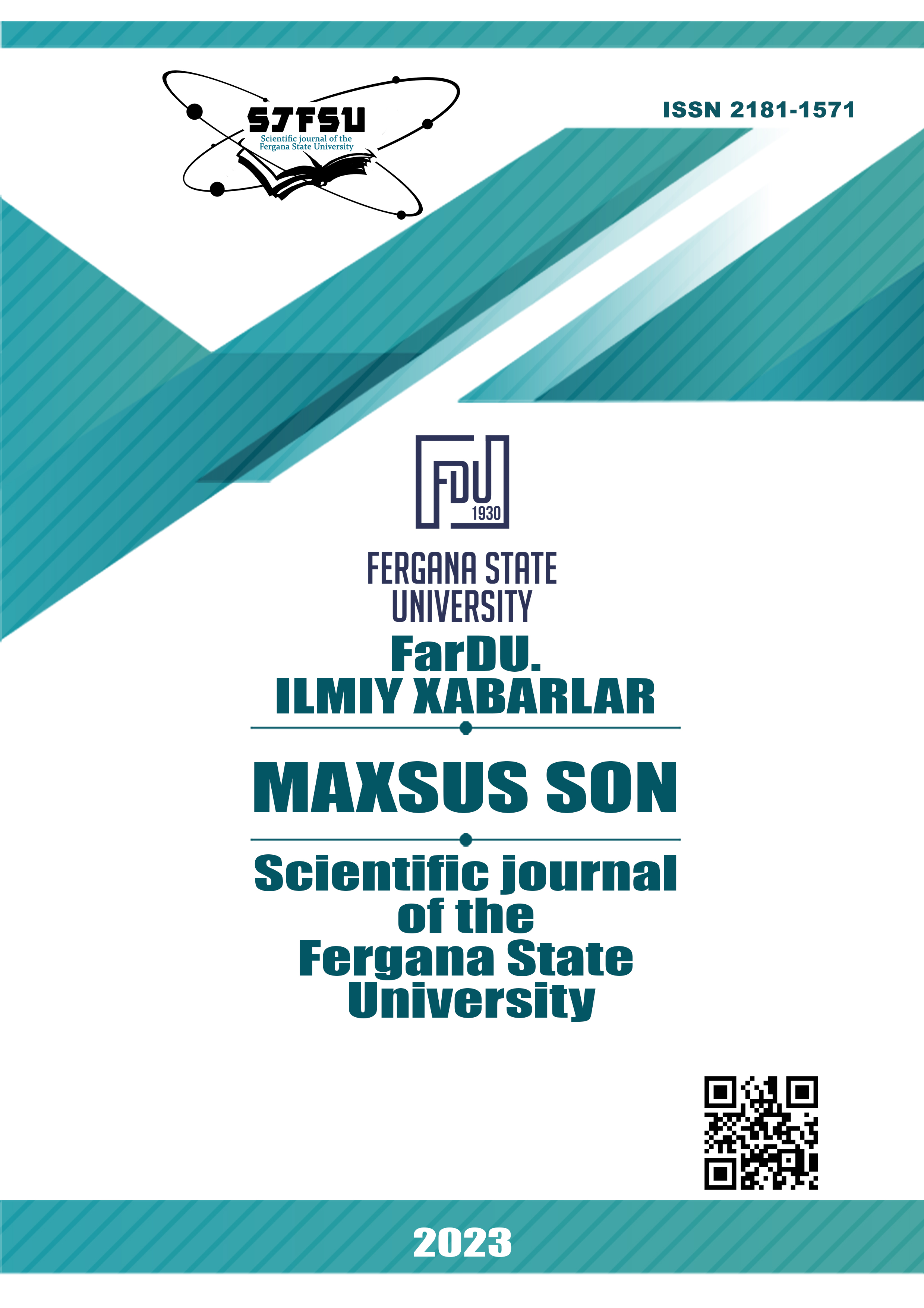THE “CONCEPT” IN LINGUISTICS
Keywords:
concept, notion, idea, mental entity.Abstract
This article discusses the concept and its meanings, as well as similarities and differences of “concept” usage in linguistic, philosophical and logical dictionaries. Besides it discusses the definitions given to the term "concept" by linguists conducting research in Uzbek and Russian linguistics. It thoroughly discusses that the concept as a term has become the main object of research not only in linguistics but also in other fields, including philosophy, logic, linguistic and cultural studies, and that it is considered as a term that gives the central idea.
References
Goguen, Joseph (2005). "What is a Concept?". Conceptual Structures: Common Semantics for Sharing Knowledge. Lecture Notes in Computer Science. Vol. 3596. pp. 52–77.
Carol G. Braham (project editor), Random house Webster’s Dictionary, Fourth Edition, Ballantine books, New York, 2001, pp 850, p 146
NTC’s Super-Mini English Dictionary, Copyright 2002, The McGraw-Hill Companies, Inc., pp 662, p 87
Oxford Advanced Learner’s Dictionary of Current English, Oxford University Press, New York, 2005, pp 1780, p 313
Jack C. Richards, Richard Schmidt, Longman Dictionary of Language teaching and applied linguistics, Fourth Edition, Routledge Taylor & Francis Group, London and New York, 2013, www.routledge.com. 644/ pp 112-113
Roy T. Cook, A dictionary of Philosophical Logic, Edinburgh University Press, 2009, pp 329, p 56
Easier English Student Dictionary, P.H. Collin, Bloomsbury Reference Book, British Library Cataloguing-in-Publication Data, London, 2003, pp 1025, p 169
Краткий словарь по логике / Д. П. Горский, А. А. Ивин, А. Л. Никифоров; под ред. Д. П. Горского. — М.: Просвещение, 1991.-208 с.-ISBN5-09-001060-9., c 80
Степанов Ю.С., Константы: Словарь русской культуры. Опыт исследования.-М.: Школа Языки русской культуры, 1997- стр.40-76
В.З.Демьянков Термин «концепт» как элемент терминологической культуры // Язык как материя смысла: Сборник статей в честь академика Н.Ю.Шведовой / Отв. ред. М.В.Ляпон. – М.: Издательский центр «Азбуковник», 2007. (РАН: Институт русского языка им. В.В.Виноградова). С.606–622
Мухторова, Б. А. (2023). ТУРЛИ ТИЗИМЛИ ТИЛЛАРДА “БОЙЛИК” КОНЦЕПТИНИНГ ЛЕКСИК-СЕМАНТИК ХУСУСИЯТЛАРИ. GOLDEN BRAIN, 1(5), 99-103.
Соломоник А. Семиотика и лингвистика. - М.: Молодая гвардия, 1995. С.246
Колесов В. В. Язык и ментальность. - СПб, 2004.С.19-20
Рахматова М.М. инглиз, ўзбек ва тожик миллий маданиятида “гўзаллик” концептининг лисоний хусусиятлари. Филология фанлари бўйича фалсафа доктори (PhD) диссертацияси автореферати. Бухоро-2019.13-бет.
Мардиев Т. “Бахт” концептининг лингвомаданий ва семантик талқини (инглиз ва ўзбек тиллари қиёсида)// “Хорижий филология: тил, адабиёт, таълим” (Илмий ахборотнома журнали). – Самарқанд:СамДЧТИ нашриёти, 2016, №10.Б.36-44.
Умархўжаев М.Э. Умумий тилшунослик.- Андижон, 2010- Б.55.
Mukhtorova, B. (2023). THE LINGUISTIC AND CONCEPTUAL PICTURE OF THE WORLD. Science and innovation, 2(B1), 461-466.
Downloads
Published
Issue
Section
License
Copyright (c) 2024 Scientific journal of the Fergana State University

This work is licensed under a Creative Commons Attribution-NonCommercial-NoDerivatives 4.0 International License.

